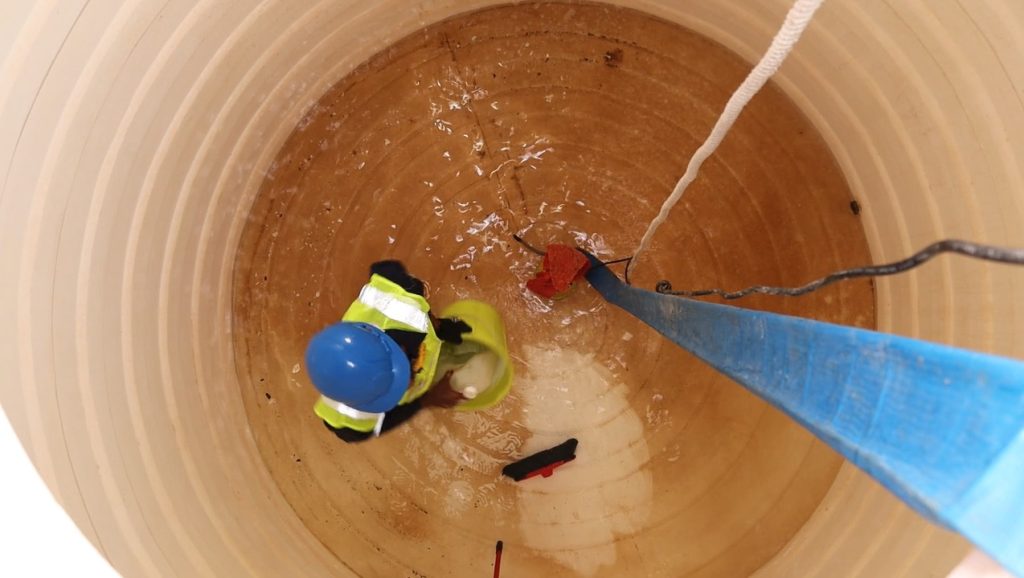About Benchmark
Benchmark Pest Control & Cleaning Services a Limited Liability Company based in Dubai specialized in a variety of General Contract Pest Control Jobs.
Benchmark Pest Control & Cleaning Services © 2022 All Right Reserved
Water tanks play a crucial role in supplying clean water for daily use, but over time, they can accumulate dirt, debris, and harmful bacteria. Ignoring regular maintenance can pose serious health risks and affect the quality of water. This blog will guide you through the key signs indicating that your water tank needs immediate cleaning, helping you identify potential issues early. You will also learn about the importance of regular tank maintenance and practical steps to ensure your water remains safe for consumption.
Water tanks are often neglected despite being an essential part of any home or commercial building. Over time, sediment, rust, algae, and other impurities settle at the bottom of the tank. This can contaminate the water, leading to health problems such as gastrointestinal infections, skin irritations, and other waterborne diseases. Regular cleaning not only ensures the safety of your water but also prolongs the life of the tank and reduces maintenance costs in the long run.
Knowing when to clean your water tank is crucial. Here are the most common signs that indicate your tank may require immediate attention:
If you notice particles, dirt, or sediment at the bottom of your tank or floating in the water, it is a clear sign that your tank needs cleaning. Sediment accumulation not only affects water quality but can also clog pipes and damage water pumps.
A strong, unpleasant smell from the water is often caused by bacterial growth or decaying organic matter inside the tank. If water smells musty, rotten, or metallic, it indicates contamination and the need for immediate cleaning.
Clean water should always be clear. If your water appears cloudy, yellowish, or brown, it is likely contaminated with rust, algae, or sediment. Discolored water can stain fixtures and cause health issues if consumed.
Algae thrive in water tanks exposed to sunlight or poorly maintained conditions. Greenish water or slime along the tank walls signals algae growth. Algae can introduce bacteria and reduce water quality, making regular cleaning essential.
A sudden rise in health issues such as stomach infections, diarrhea, or skin irritations among residents may indicate contaminated water. While other factors may contribute, a dirty water tank is a common culprit.
Metallic water tanks are prone to rust over time. Rust not only contaminates water but also weakens the tank structure. Regular inspection and cleaning can prevent severe damage and costly repairs.
Water with an unusual or bitter taste is a warning sign that your tank may contain impurities. This can result from bacterial growth, chemical reactions, or accumulated debris.
Proper maintenance helps prevent contamination and ensures a steady supply of clean water. Here are some tips to maintain your water tank effectively:
Schedule Regular Cleaning: Clean your tank at least once or twice a year to prevent sediment buildup and bacterial growth.
Inspect Tanks Frequently: Look for signs of rust, algae, or cracks in the tank walls.
Cover Your Tank Properly: Use a secure lid to prevent debris, insects, or animals from entering.
Check Water Quality: Regularly monitor the water for changes in color, taste, or odor.
Use Safe Cleaning Methods: When cleaning, use safe disinfectants and thoroughly rinse the tank to avoid chemical contamination.
Hire Professionals: Engaging expert water tank cleaning services ensures thorough cleaning and proper handling of hazardous materials.

Ignoring water tank maintenance can lead to serious health concerns, including:
While minor cleaning tasks can be handled independently, professional cleaning ensures:
Engaging with professional services offers a consistent means to protect your water supply and maintain the safety of all individuals who depend on it.
A well-maintained water tank is key to ensuring that the water you use daily is safe and healthy. By monitoring for signs like foul smells, color changes, sediment, algae growth, or odd tastes, you can take timely steps to avoid health issues. Consistent inspections, suitable maintenance, and professional cleaning services are necessary to keep your water tank functioning properly. Routine pest inspections and prompt cleaning of water tanks not only protect your health but also increase the durability of your life system.
WhatsApp us